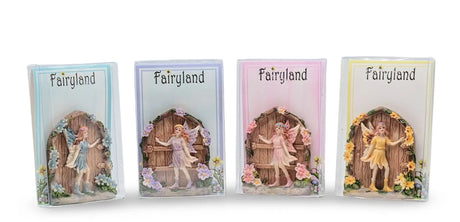
Ganesha, also known as Ganapati or Vinayaka, is one of the most revered deities in Hinduism. With his distinctive elephant head and potbelly, Ganesha is easily recognizable and holds a significant place in both religious and cultural contexts. But what is the symbolic meaning behind this beloved deity? Let's explore the deeper significance of Ganesha's symbolism.
1. Remover of Obstacles
Ganesha is widely known as the "Remover of Obstacles." His elephant head represents wisdom and intelligence, while his large ears symbolize the ability to listen attentively. Ganesha's trunk, which is often depicted as curved, signifies adaptability and the power to overcome any obstacles that come our way. By invoking Ganesha, devotees seek his blessings to overcome challenges and achieve success in their endeavors.
2. Lord of Beginnings
Ganesha is also revered as the "Lord of Beginnings." His association with new beginnings stems from the mythological story of how he acquired his elephant head. According to Hindu mythology, Ganesha's original head was severed and replaced with that of an elephant by Lord Shiva. This transformation symbolizes the ability to let go of the past and embrace new beginnings. Devotees often seek Ganesha's blessings before embarking on new ventures or starting important life events.
3. Symbol of Wisdom and Knowledge
Ganesha is considered the embodiment of wisdom and knowledge. His large head represents the vastness of knowledge, and his small eyes symbolize concentration and focus. Ganesha's association with intellect and learning makes him a patron of students and scholars. Many educational institutions and libraries have statues or images of Ganesha to invoke his blessings for success in academics.
4. Guardian of Wealth and Prosperity
Ganesha is often depicted with a potbelly, which is a symbol of abundance and prosperity. His association with wealth and material possessions makes him a popular deity among business owners and entrepreneurs. Devotees believe that by worshiping Ganesha, they can attract wealth and prosperity into their lives. Ganesha's blessings are sought before starting new business ventures or during financial endeavors.
5. Symbol of Good Fortune and Luck
Ganesha is considered a harbinger of good fortune and luck. His presence is believed to bring positive energy and remove any obstacles that may hinder progress. Many people keep Ganesha idols or images in their homes or workplaces to invite good luck and blessings into their lives. Ganesha's association with luck and auspiciousness is deeply ingrained in Hindu culture and traditions.
In conclusion, Ganesha's symbolism encompasses various aspects of life, including the removal of obstacles, new beginnings, wisdom, prosperity, and good fortune. By understanding the deeper meaning behind Ganesha's symbolism, devotees can develop a deeper connection with this beloved deity and seek his blessings for a fulfilling and successful life.











